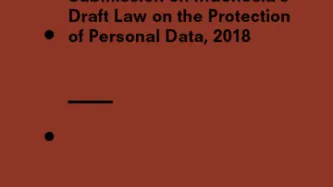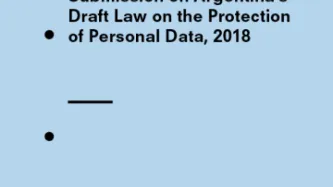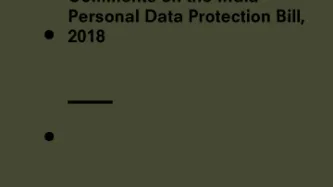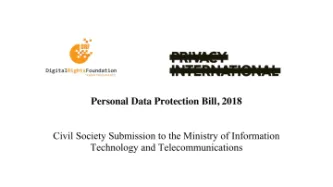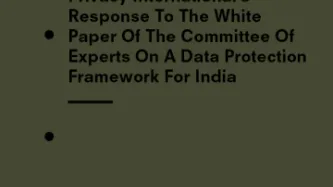Search
Content type: Advocacy
Privacy International responded to the consultation on the proposed data protection bill (the "Bill") to reform the current law 25.326
We welcome the continued efforts by Argentina to provide protections for the right to privacy, already enshrined in the Constitution of Argentina. PI welcomes the main objective of the Bill, namely to regulate the processing of personal data in order to guarantee fully the exercise of data subjects’ rights in accordance with Article 43 of the Constitution (…
Content type: Advocacy
Since 2014 the Indonesian Ministry of Communication and Informatics (MOCI) has been proposing that the Parliament passes a comprehensive data protection law. A first draft data protection law was issued by the Government for public comment in 2015 but no progress was made, and then in early 2018, the Indonesian Government issued a new draft personal data protection law.
While these renewed efforts have positive intentions, a number of concerns ought to be addressed with the aim of…
Content type: Advocacy
In September 2018, the National Executive sent the proposed Data Protection Bill to the National Congress. The proposed law was directed to the Senate and it will be considered by two commissions: the Commission of Constitutional Affairs (Comision de Asuntos Constitucionales) and the Commission of Rights and Guarantees (Comision de Derechos y Garantías).
Privacy International welcomes the continued efforts by Argentina to provide protections for the right to privacy, already enshrined in the…
Content type: Advocacy
Privacy International welcomes the effort by the Government of India to reaffirm its commitment to upholding and respecting the right to privacy, and for noting the need to regulate the processing of personal data as essential for the protection of privacy through the adoption of a data protection law.
The urgent need for this legislation has been validated in the Supreme Court decision regarding the Aadhaar Act, which stipulates the need for a robust data protection regime. …
Content type: News & Analysis
Image attribution: By Blue Diamond Gallery CC BY-SA 3.0.
In March 2017, when the UN Human Rights Council requested the High Commissioner for Human Rights to prepare a report on the right to privacy in the digital age, including the responsibility of business enterprises, Cambridge Analytica was an obscure company among others. A year later the data exploitation scandal erupted, leading to plenty of soul searching by politicians in US, UK, Europe and elsewhere, pledges of…
Content type: Advocacy
We welcome the effort by the Pakistani Ministry of Information Technology and Telecommunications to regulate the processing of personal data in Pakistan, and take measures to guarantee the right to privacy as guaranteed under Article 14(1) of the Constitution: “[t]he dignity of man and, subject to law, the privacy of home, shall be inviolable.”
This legislative development is crucial and timely as Pakistan continues to embrace innovative governance initiatives and deploy data-intensive systems…
Content type: Advocacy
India has been leading at developing some of the most complex and intense data-intensive systems in the world as exemplified with their mass biometric identification system, known as Aadhaar, as well as in the development and design of new technologies. To find out more about the main privacy issues in India, check out the State of Privacy in India.
And yet, India does not have a comprehensive privacy legislation and only limited data protection standards can be found under section 43A and…
Content type: News & Analysis
Este artículo fue co-escrita con Valeria Milanes de la Asociación por los Derechos Civiles (ADC). Una versión en ingles está disponible aquí.
En Enero de 2015, el sistema de inteligencia de Argentina fue objeto de atención pública luego de la muerte del fiscal Alberto Nisman, debido a la presunta participación de los servicios de inteligencia en dicho suceso. Este escándalo impulsó la reforma del sistema de inteligencia del país.
En Febrero del mismo…
Content type: News & Analysis
The National Privacy Commission has had to firefight a huge leak of voter data in Philippines just one month before the elections
Raymund Liboro, the Philippines’ National Privacy Commissioner, has had a tough few weeks. Barely has his office even existed -- he was appointed in March -- than it is having to firefight what is being reported as the country’s most massive data breach to date. On 27 March, a hacker broke in to the national Commission on Elections (Comelec)’s…

